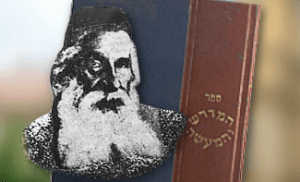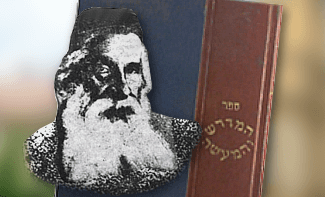
Do not add to the word that I command you…See, I have taught you decrees and ordinances as Hashem my G-d has commanded me …to do so in the midst of the Land…Only safeguard for yourself, and greatly safeguard for your soul, lest you forget the things that your eyes have beheld…and make them known to your children and your children’s children the day that you stood before Hashem your G-d at Chorev.[2]
It wasn’t modern skeptics who first spotted the problem. Our rishonim already did battle over the issue. If the Torah warns us – in multiple places, at that, not to add to the Torah, how do we find ourselves laden with so many restrictions legislated by the rabbis? Have they not added to the Torah?
Rambam[3]offers one of the approaches. He writes that it is forbidden for the beis din to rule that the prohibition of cooking meat and milk together extends to fowl. If they do, they violate the prohibition of adding on to the Torah. Instead they should rule that when the Torah speaks of cooking a “kid” it does not mean fowl. Nonetheless, they are prohibiting it as a fence around the Law, and they should publicize this thinking to the people. (As you might expect, the Raavad disagrees about the definition of “adding on.”)
Read our parshah carefully, and you will discover a major assist to the Rambam’s case.
Our selection of pesukim begins with an admonition against adding on to the Torah. Strangely, it seems to end with the opposite. “Safeguard for yourself, and greatly safeguard for your soul.” While safeguarding may mean nothing more than meticulously observing all rules that apply, when the Torah specifies “greatly safeguard” it must mean something more than the usual. The reasonable candidate is a proactive safeguarding, some affirmative action taken beyond just refraining from transgression. Such affirmative action is what we call gezeros, rabbinically-ordained fences around the Law. If this is correct, then the parshah begins by instructing people not to add to the Torah, and then ends with an instruction to do just that!
Fortunately, the intervening verses – when read keeping the Rambam in mind – clear up the apparent contradiction. “See, I have taught you decrees and ordinances… as Hashem my G-d has commanded me.” Here Moshe posits the first step. Before considering any rabbinic safeguards, he must first make clear with the basic Torah law is. Only after that are we bidden to create safeguards as needs, provided that we “make them known to your children and your children’s children.” In other words, we must publicize that the fences are just that – rabbinic laws made to safeguard the Torah law – and nothing more.
Chazal offer various meshalim for the purpose of rabbinic fences. They compare them to “handles” that are added to a “basket without handles.”[4] Elsewhere[5] they add a second mashal: to an orchard that must be guarded from outside, rather than just inside, to be effective. Neither one alone fully conveys the scope of the fences, because they service two different needs.
Some fences serve the immediate need of keeping people away from transgression. They are aimed at the present. Others, however, look to a future in which observance is compromised, and attempt to prevent even further erosion of practice. They attempt to hold a beachhead in which at least the most important practices are observed.
The basket functions adequately in its place. Handles are needed only when moving it from place to place. This mashal works well for the innovations of Shlomo, which were not ordinary fences, but affirmative obligations. The mashal suggests that they were needed not so much for the generation in which they were promulgated, but for the future – in moving from one “place” in time to another.
The orchard mashal deals with immediate protection. When the guardians look from within, they can only see what is in front of them. Guarding from the right position outside can protect everything within a perimeter. It is introduced in a gemara that deals with second-degree prohibited relations. They were legislated to ensure that people would not cross over the boundary to the first-degree prohibitions – the Torah’s list of forbidden incestuous relations.
Both of these meshalim are hinted at in our pesukim. We are cautioned “lest you forget the things that your eyes have beheld.” We are to be like the watchman standing at a good vantage point outside the orchard, whose eyes can behold the entirety of his charge. By creating the proper gezeros, we will not forget our duties to what is inside.
We are also told, however, to consider the future. “Make them known to your children and your children’s children.” We must legislate as well with an eye on preserving a legacy for future, less certain times. We must prepare for the eventuality that there will be some weakening of observance in the future. We should try to ensure that even if that happens, the core element of what we received when we “stood before Hashem…at Chorev” will be transmitted to coming generations.


